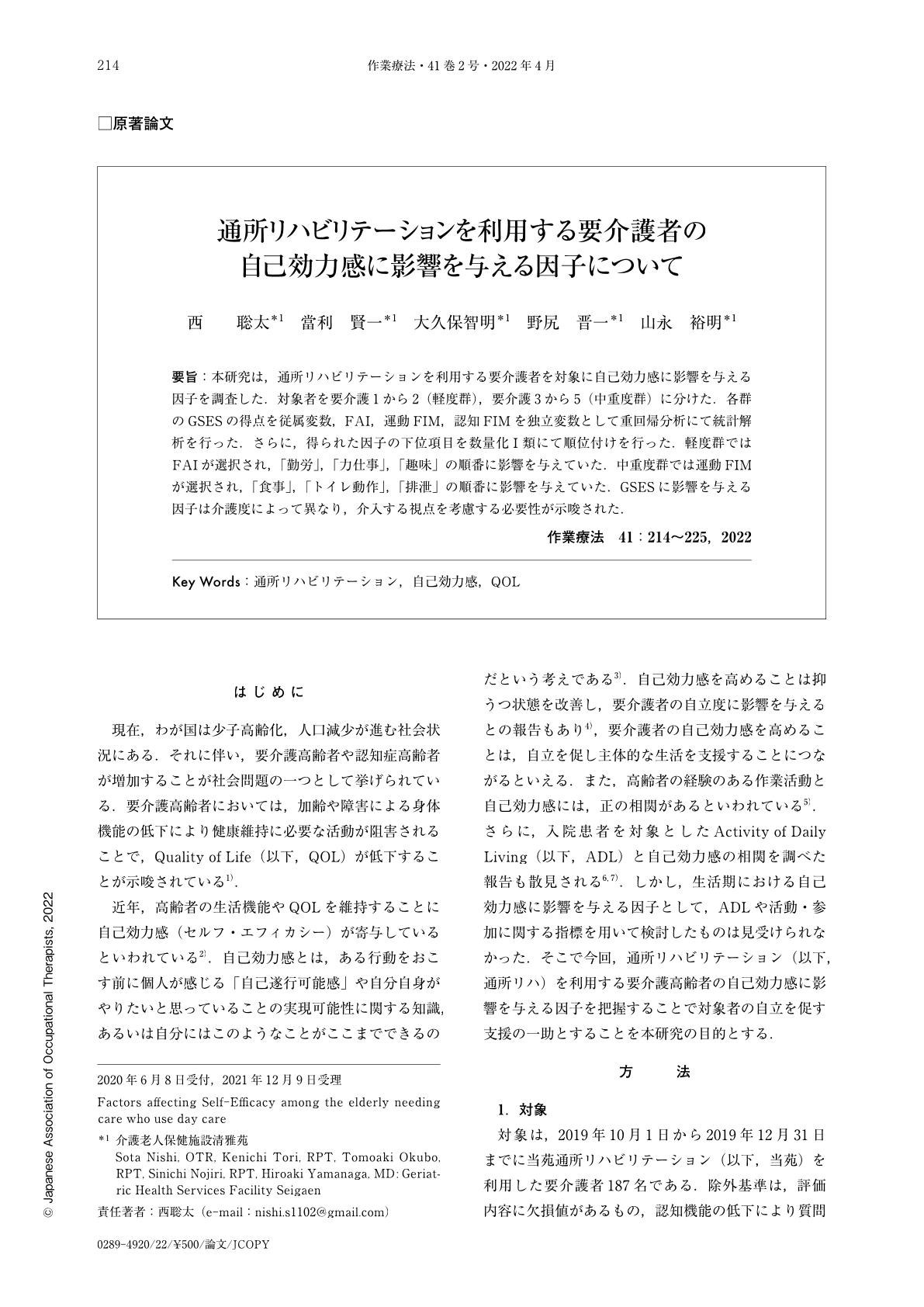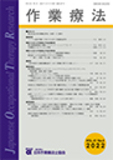Japanese
English
- 販売していません
- Abstract 文献概要
- 1ページ目 Look Inside
- 参考文献 Reference
要旨:本研究は,通所リハビリテーションを利用する要介護者を対象に自己効力感に影響を与える因子を調査した.対象者を要介護1から2(軽度群),要介護3から5(中重度群)に分けた.各群のGSESの得点を従属変数,FAI,運動FIM,認知FIMを独立変数として重回帰分析にて統計解析を行った.さらに,得られた因子の下位項目を数量化Ⅰ類にて順位付けを行った.軽度群ではFAIが選択され,「勤労」,「力仕事」,「趣味」の順番に影響を与えていた.中重度群では運動FIMが選択され,「食事」,「トイレ動作」,「排泄」の順番に影響を与えていた.GSESに影響を与える因子は介護度によって異なり,介入する視点を考慮する必要性が示唆された.
Background and Purpose: Occupational therapy intervention is important for improving self-efficacy. However, there are few studies of care recipients who use day care. This study investigated the factors affecting self-efficacy for care recipients who use day care.
Methods: This study was conducted on 187 care recipients who use day care. Statistical analysis was performed using multiple regression analysis with GSES scores as the dependent variable and FAI, motor FIM, and cognitive FIM as the independent variables in two groups: a mild group and a moderately severe group. In addition, the subordinate items of the obtained factors were ranked in quantification method I.
Results: The results showed that FAI was selected for the mild group, with the order of influence being “the domain of work”, “heavy housework”, and “hobby”. In the moderately severe group, motor FIM was selected, and the order of influence was “eating”, “toileting”, and “sphincter control.”
Conclusion: Factors affecting the GSES score vary depending on the level of needed care. This suggests that intervention methods need to be considered.

Copyright © 2022, Japanese Association of Occupational Therapists. All rights reserved.


